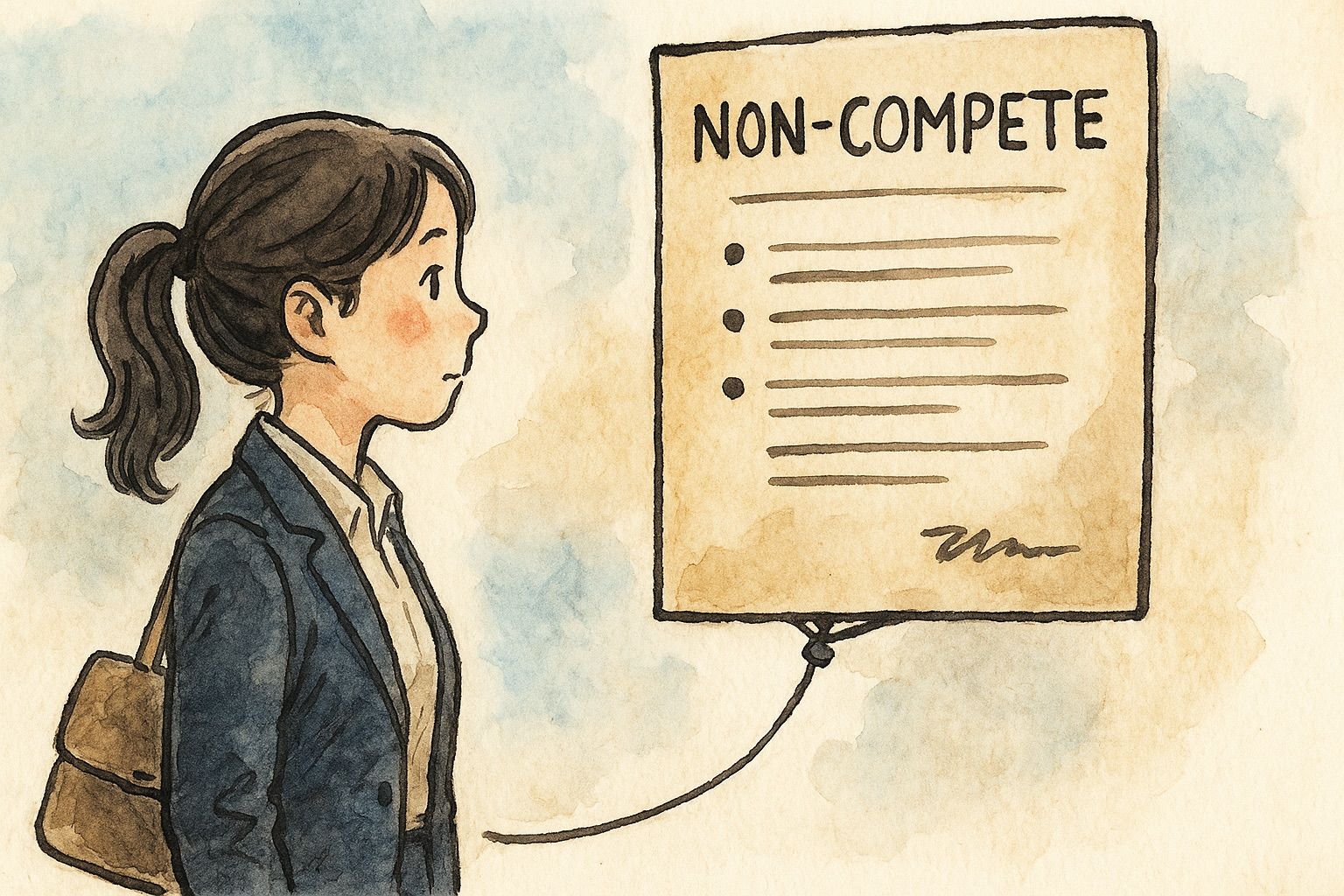When establishing an employment relationship, most employees do not pay much attention to the content of the employment contract, which, in addition to referring to the employer's general acts, mostly regulates the rights and obligations of the employee. Based on this, some employers aim to maximize the protection of their interests with provisions that are an integral part of the employment contract, all within the legal framework. One such provision is the non-competition clause, which is prescribed by Articles 161 and 162 of the Labor Law ("Official Gazette of the RS", No. 24/2005, 61/2005, 54/2009, 32/2013, 75/2014, 13/2017 - Constitutional Court decision, 113/2017, and 95/2018 - authentic interpretation).
Legal Requirements
The condition for prescribing the non-competition clause is that the employee, through their work with the employer, may acquire new, particularly important technological knowledge, a wide range of business partners, or access to important business information and secrets. However, that fact has not prevented the widespread use of this clause even in cases where the conditions are not met.
Scope and Specificity
The employer is obliged to specify in the employment contract the tasks the employee cannot perform. However, it is not uncommon to encounter overly broad or insufficiently precise clauses regarding the scope of the prohibition, which creates a risk and dilemma when applying them. The non-competition clause is characteristic of positions where the employee may acquire important technological knowledge and crucial business information, as well as contact with business partners. Therefore, such a clause makes the most sense in terms of contracts concluded with directors, other executives, or positions where specific knowledge and abilities are acquired.
Territorial and Temporal Validity
The territorial and temporal validity of the non-competition clause is also determined by the general act and the employment contract—whether it will last only during the employment relationship or even after its termination (according to the law, for a maximum of 2 years after the termination of the employment relationship).
Compensation Requirements
What many employers consciously or unconsciously omit from the employment contract is the amount, and later the payment, of compensation to the employee for adhering to the non-competition clause after the termination of the employment relationship. If the amount of compensation is not clearly defined in the employment contract, the non-competition clause has no legal effect. Furthermore, if the amount is defined but the employer does not pay the agreed amount, the non-competition clause is without effect. It is important to note that the employer can at any time decide to release the employee from the application of this clause, which is most commonly the case in practice. In such a case, there is no obligation to pay the prescribed compensation, nor does the employee have the obligation to adhere to the non-competition clause after the termination of the employment relationship.
Consequences of Violation
If the employee violates the non-competition clause, the employer has the right to demand compensation for damages or even terminate the employment contract if the violation occurred during the employment relationship. However, it is necessary for the violation of the non-competition provisions to have been previously prescribed as grounds for dismissal. Otherwise, there is no basis for such actions, as confirmed by numerous court decisions.
Purpose of the Clause
It could be concluded that the essence of the non-competition clause arises from the fact that the employee, by establishing an employment relationship with a competing employer, could cause harm to the previous employer and reduce their competitiveness in the market. By including the non-competition clause in the employment contract, the employer protects their interests by preventing the employee from performing certain tasks outlined in the contract and from using the knowledge, information, and circle of business partners they acquired during their work with the employer to the detriment of the employer.
Contractual Penalties
This is precisely why, as an additional safeguard for enforcing the non-competition clause, a contractual penalty is often prescribed in a specified monetary amount in employment contracts. The purpose of the contractual penalty is for the employer to have the right to claim the amount of the contractual penalty if the employee violates the non-competition clause, without the need to prove actual damage.
Legal Controversies
Due to the nature of the contractual penalty, the question of its justification and application in employment relations has been raised. Although the Law on Contracts and Torts does not prescribe any exceptions regarding the use of this institute in employment relations, the Supreme Court and general jurisdiction courts have taken the position that the contractual penalty is an institute of contracts law applied to the creditor-debtor relationship, and that such a provision has no place in an employment contract. The reason for this is the unequal position in the contractual relationship between the employer and the employee, where the employee is undoubtedly the weaker party. In contrast, the Commercial Court, in a 2023 verdict, took the opposite stance, justifying the inclusion of the contractual penalty in the employment contract as presumed damage on the employer's side.
However, the application of this institute in employment relations remains questionable.
Conclusion
The conclusion is that employers, when prescribing a non-competition clause in employment contracts, must first verify the fulfillment of the conditions for its application, and ultimately be aware of the risks involved in prescribing a contractual penalty if they intend to further secure themselves in this way.


